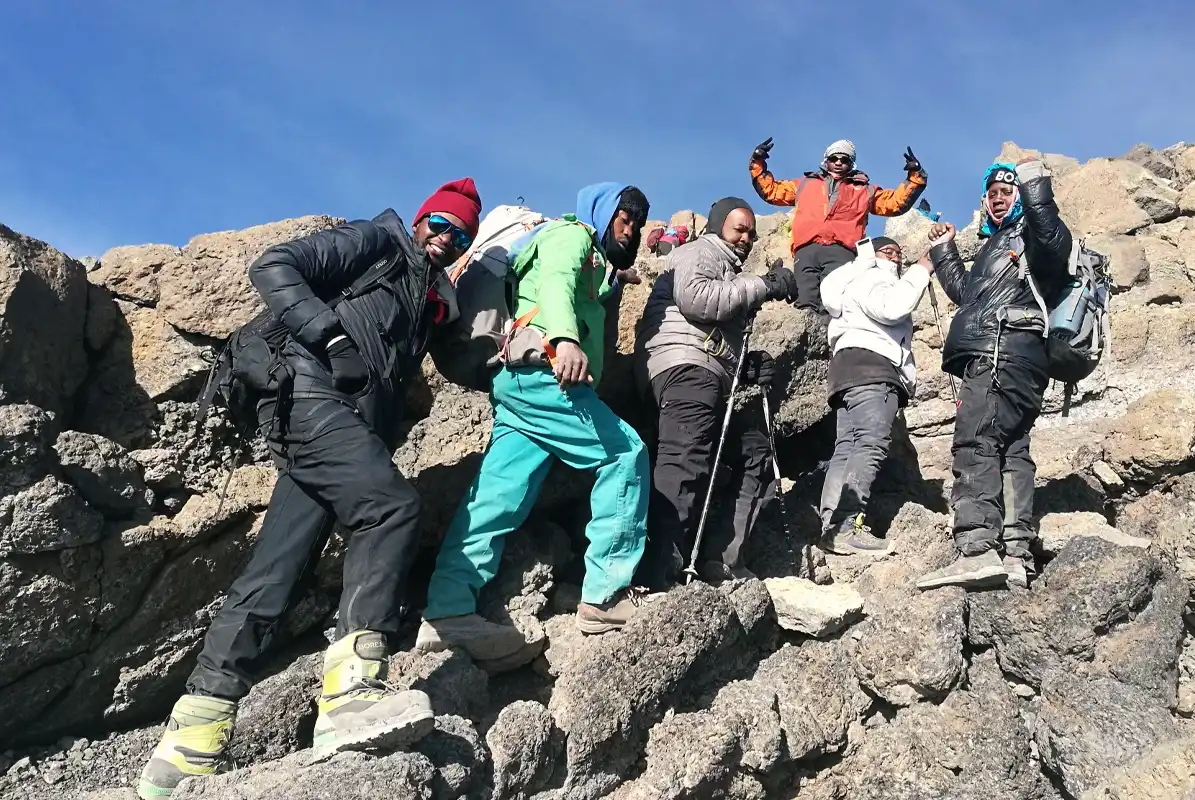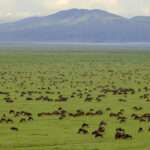So, you’re gearing up to conquer Kilimanjaro with your crew? Whether it’s a band of friends or a family expedition, if you’ve found yourself designated as the chief organizer, I extend my sympathies. Brace yourself, because the truth is, you’ll be shouldering the lion’s share of the workload to turn your dream trek into reality.
Arranging any expedition on Kilimanjaro is no walk in the park. From booking flights to sorting out insurance, from gathering equipment to securing visas and vaccinations—there’s a laundry list of tasks before you even set foot in Tanzania. We’ve even crafted a timetable to streamline your preparations for the Kilimanjaro journey.
But if you’re spearheading a group ascent, be prepared to multiply that workload.
Your time will largely be consumed by wrangling your team—nudging them to gear up, shape up, book flights, and furnish personal details to the trek organizer. And that’s before you even approach them for financial contributions—a task that often proves the most challenging.
To alleviate some of the strain, here are a handful of invaluable tips to ease the burden of organizing a group trek on Kilimanjaro:
- Plan Well in Advance: Aim to arrange your trek at least a year ahead. While last-minute treks are possible, they come with their own set of complications, like fragmented flight bookings and accommodation woes. Schedule several group meet-ups to discuss logistics, routes, budgets, and post-trek plans.
- Private vs. Public Treks: If your group exceeds four members, consider a private trek for a more personalized experience. Conversely, smaller groups might find camaraderie in joining a public trek.
- Reach Out to Trekking Companies: Armed with an estimate of your group size and budget, initiate contact with reputable trekking agencies. Negotiate pricing and perks, leveraging your group’s size to secure favorable terms.
- Flexibility is Key: Choose a company willing to accommodate fluctuations in group size without penalizing you financially.
- Exercise Caution with Charity Climbs: Approach charity climb offers with scrutiny, ensuring the terms align with your expectations and fundraising capabilities.
- Educate Yourself and Assume Responsibility: Familiarize yourself with Kilimanjaro climbing essentials to guide group discussions and decision-making effectively.
- Create a Communication Hub: Establish a WhatsApp group or similar platform to facilitate ongoing communication, camaraderie, and information sharing among group members.
- Encourage Questions: Foster a culture of open communication by encouraging group members to voice their queries and concerns.
- Document Dissemination: Ensure all documents received from the trek operator are promptly distributed among group members to mitigate liability risks.
- Share Contact Information: Foster team cohesion by ensuring everyone has access to each other’s email addresses.
- Respect Privacy: Encourage group members to share medical conditions, dietary needs, and personal details directly with the trek operator to maintain confidentiality and ensure essential information reaches the organizer.
By implementing these strategies, you can streamline the organization process and ensure a smoother, more enjoyable trekking experience for everyone involved.









